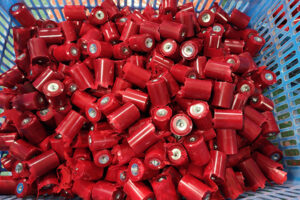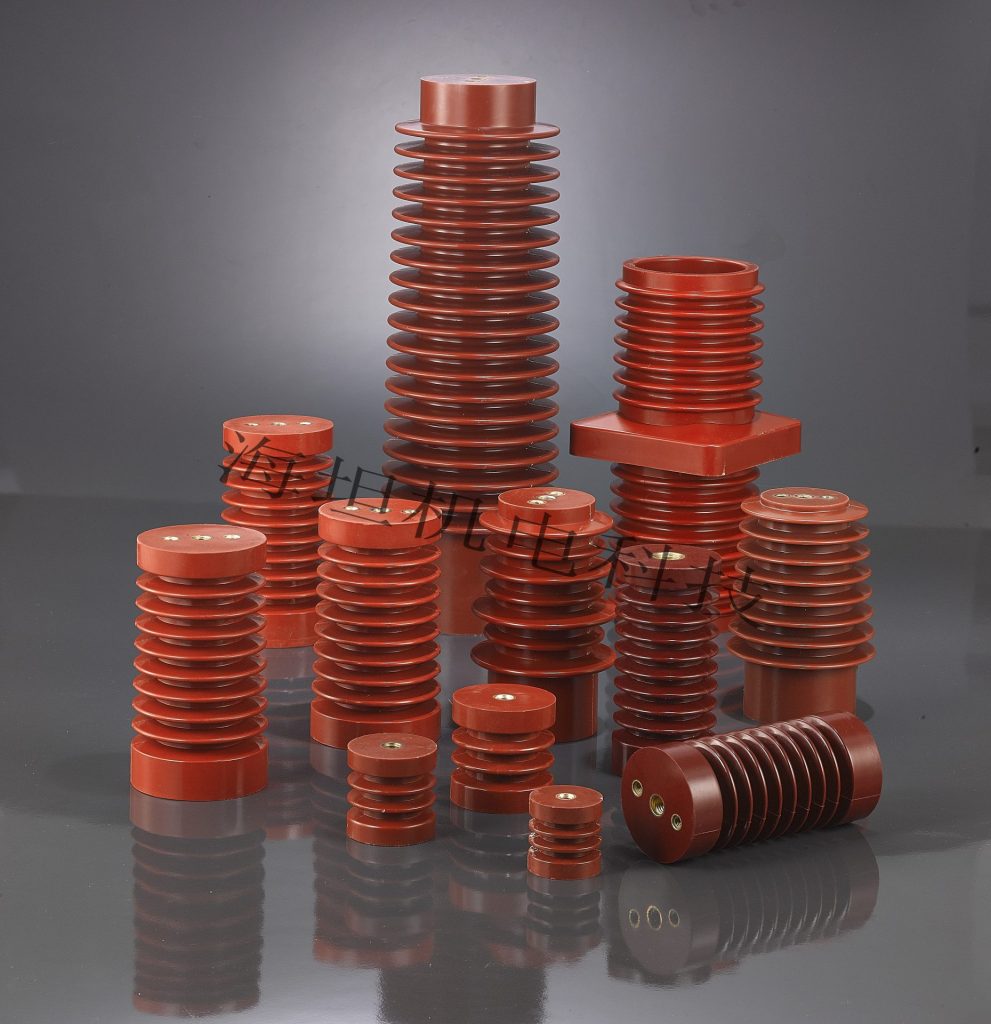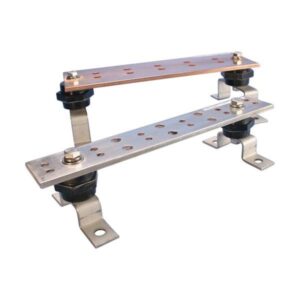The Role Of Busbar Insulators In Solar Power Inverter
When we think of solar inverters, we often focus on their rated power, efficiency, MPPT and overall performance. But have you ever wondered about the Enter busbar insulators? They are the unsung heroes of solar inverters. Without them, the entire inverter system would be at risk of electrical faults, inefficiency and reduced lifetime.
In this blog, we’ll take a closer look at the role of busbar insulators in solar inverters, highlighting their importance, benefits and the potential consequences of neglecting them.
1. What Is a Busbar Insulator?
A busbar insulator is a specialized component designed to provide electrical insulation and mechanical support for busbars. In case you’re wondering, busbars are conductive metal strips or bars that transmit electricity within electrical systems. Think of them as the highways of electricity in a system like a solar power inverter, and busbar insulators are the bridges that ensure the traffic (current) flows safely and smoothly.
Busbar insulators, such as epoxy resin insulators, busbar support insulators, and busbar standoff insulators, play a dual role:
Electrical Insulation: They prevent short circuits or electrical faults by keeping the conductive parts of the busbars separated from each other and the system casing.
Mechanical Support: They hold the busbars firmly in place, ensuring stability and preventing damage caused by vibrations, thermal expansion, or external forces.

2. Why Busbar Insulators Are Essential in Solar Power Inverters
Solar power inverters are at the heart of every photovoltaic (PV) system. They convert the DC (direct current) generated by solar panels into AC (alternating current) for use in homes, businesses, or the grid. The busbars inside these inverters manage the flow of high-voltage electricity, and busbar support insulators ensure this flow is safe and uninterrupted.
Let’s explore why busbar insulators are so vital for solar power inverters:
2.1 Enhancing Safety with Busbar Insulators in Solar Power Inverters
Safety is non-negotiable. In a solar power inverter, we’re dealing with high voltages and currents. Without proper insulation, it’s Dangerous . So here’s how busbar insulators contribute:
Preventing Short Circuits: By insulating busbars, components like epoxy resin busbar support insulators prevent unintended electrical contact between different phases or with the casing. This reduces the risk of system failures, fires, or injuries.
High Dielectric Strength: Busbar insulators, especially those made from materials like epoxy resin, can withstand high voltages, ensuring that the solar inverter operates safely even under extreme electrical loads.
Maintaining Safe Distances: Insulators like conical busbar insulators are designed to keep a safe gap between high-voltage busbars, preventing electrical arcs and ensuring compliance with safety standards.
Source: Monarch
2.2 Improving Reliability of Solar Power Inverters through Busbar Insulators
The reliability of a solar power inverter is critical to the smooth operation of any PV system. We want them to work consistently, day in and day out, converting that precious solar energy into usable electricity. Busbar insulators play a key role in this:
Minimising Electrical Losses: Poor insulation can lead to leakage currents, which reduce efficiency. High-quality insulators like DMC busbar support insulators ensure that electricity flows precisely where it’s needed, boosting overall reliability.
Withstanding Harsh Conditions: Solar inverters are often installed in challenging environments, such as rooftops or outdoor solar farms. Insulators made from SMC (Sheet Moulding Compound) or epoxy resin resist extreme temperatures, UV exposure, and moisture, ensuring long-term reliability.
Vibration Resistance: Mechanical stability is essential in maintaining electrical connections. Busbar standoff insulators prevent the busbars from shifting due to vibrations caused by thermal expansion or external factors like wind.
2.3 Maximizing Efficiency of Solar Power Inverters with Busbar Insulators
Efficiency is a top priority in solar power systems. Who doesn’t want their solar power inverter to be as efficient as possible? Busbar insulators play a vital role in this efficiency game. Here’s how busbar insulators help achieve it:
Minimising Energy Loss: Insulators prevent energy wastage caused by electrical leakage or arcing. Components like epoxy resin busbar support insulators ensure maximum power delivery from the inverter to the load.
Improving Heat Management: Poor insulation can lead to overheating, which reduces system efficiency. Insulators with high thermal resistance, such as SMC busbar support insulators, help maintain optimal operating temperatures.
Facilitating Compact Designs: Modern solar inverters aim for compactness without compromising performance. Busbar insulators allow busbars to be positioned closer together while maintaining safety and efficiency.
For example: In someone a large commercial solar installation, they upgraded their inverter’s busbar insulators. The result? A noticeable increase in the overall power output. It was like giving the system a turbo boost. By optimizing the electrical conductivity and reducing losses, busbar insulators ensure that more of the solar energy captured by your panels gets converted into usable electricity for your home or business.
3. The Adverse Effects of Missing Busbar Insulators in Inverters
What happens if a solar power inverter lacks proper busbar insulators? The consequences can be severe:
- Increased Risk of Electrical Faults: Without proper insulation, busbars are prone to short circuits, which can lead to system failure or even fires.
- Reduced System Lifespan: Overheating, vibration, and electrical stress can cause premature wear and tear on the inverter components.
- Lower Efficiency: Poor insulation leads to energy losses, reducing the overall output of the solar power system.
- Safety Hazards: Missing or damaged busbar insulators pose serious safety risks to technicians and end-users.
- Non-Compliance with Standards: Solar power inverters must meet strict safety and efficiency standards. A lack of busbar insulators can result in non-compliance, fines, or legal issues.
4. FAQs
Q: What materials are commonly used for busbar insulators?
Busbar insulators are typically made from epoxy resin, DMC (Dough Moulding Compound), or SMC (Sheet Moulding Compound). These materials offer high electrical insulation, thermal resistance, and durability.
Q: What are the types of busbar support insulators commonly used in solar power inverter?
A: Common types of busbar support insulators used in solar inverters include epoxy resin insulators for high voltage and thermal resistance, DMC and SMC insulators for durability and environmental resistance, conical insulators for compact layouts, and standoff insulators for maintaining safe clearances.
Q: Can busbar insulators handle high voltages?
A: Yes, busbar insulators, especially epoxy resin insulators, are designed to withstand high voltages, making them ideal for use in solar power inverters and other high-voltage systems.
5. Conclusion
The role of busbar insulators in solar power inverters cannot be overstated. From enhancing safety to improving reliability and maximizing efficiency, they do it all. Whether it’s an epoxy resin busbar support insulator, a busbar standoff insulator, or a DMC busbar support, each type of insulator is carefully designed to meet the unique demands of solar inverters.
So, the next time you look at your solar power inverter, remember the vital role these small but mighty busbar insulators play. Keep them in good shape, and your solar journey will be a bright and efficient one.
--- END ---
© Copyright 2024 China Haitan Electromechanical Technology Co., Ltd. All rights reserved.SUPPORT BY:JUNJ Privacy Policy


 E-mail:
E-mail:  No. 20 Lingyun Road, Dongfeng
No. 20 Lingyun Road, Dongfeng 
